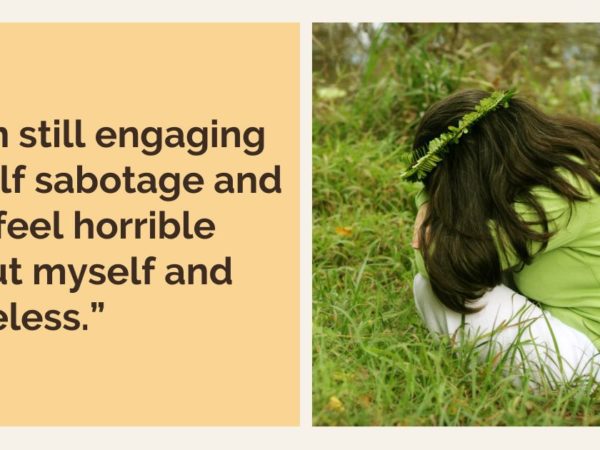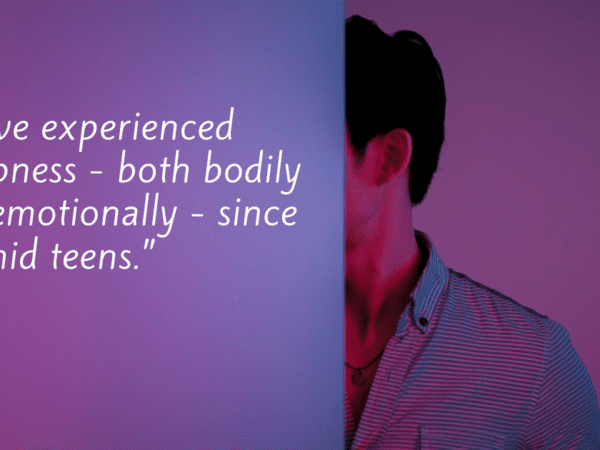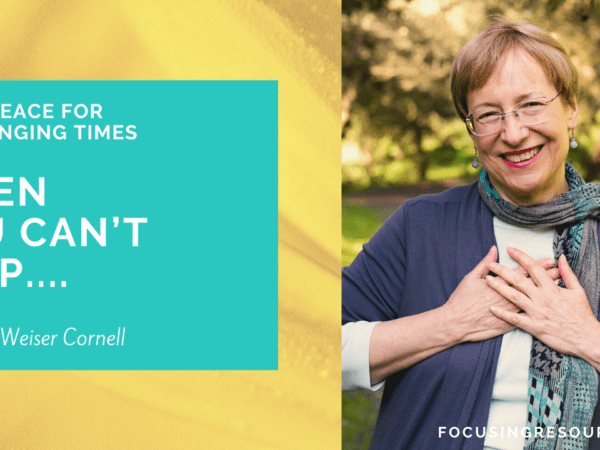“You seemed to imply that the support of a regular Focusing companion would somehow not be enough…”
Graham writes:
I read and was unsettled by this in Weekly Tips #361 :
“You can use Focusing to keep gentle company with those parts that are distressed….. Then add SE to invite the body to make the movements that were blocked at the time of the trauma. (I hope you’re working with a psychotherapist or counselor on this, you shouldn’t have to go it alone.)”
“In the light of those words, I thought it would be useful to hear what you think the limits of Focusing and Focusing partnerships are. I thought the suggestion to add SE to invite the body to make movements seemed to suggest those movements would somehow not come in ‘ordinary’ focusing, and the mention of a psychotherapist or counselor seemed to imply that the support of a regular Focusing companion would somehow not be enough. It may be that you didn’t mean to imply either of those things, yet they are there now for me as questions and I’d be interested to hear your thoughts on these issues at greater length.”
Dear Graham,
Does Focusing have limits? Yes! No! … well, it’s complicated!
I think there are methods that can – for some people – give support in particular areas more effectively than Focusing, although I would add that best of all would be to combine those methods with Focusing, so you have the best of both. Some examples include: Somatic Experiencing for instances where incomplete body movements have been inhibited by means of trauma, and EMDR, for processing traumatic memories.
Might these healing processes arise from Focusing without bringing in those other methods? Sure! And I must confess that I have used pretty much only Focusing my personal growth for the past 30 years, although before that I tried many methods. I’m a big fan of Focusing.
My response in Tip #361 was to a particular person who was suffering intrusive memories and dissociation from a surgery at age two. From the way the person wrote, I sensed the rightness of recommending both SE and a therapist. That doesn’t mean I recommend those things to everyone. If you re-read the email, you can see the cues in phrases like “can’t live with” and “it may destroy me,” cues that tell me this person could probably use the support of a kind, gentle, strong psychotherapist or other healing professional.
What psychotherapy or counseling gives us that Focusing partnership does not
To do Focusing with a Focusing partner, you need to be able to be Self-in-Presence, both toward your own process, and when your partner takes a turn. This is one of the virtues of Focusing partnership, that it calls on and calls forth our larger self.
However, there are times that most of us go through when for whatever reason we could use someone there who is not asking to take a turn, not asking for attention back, someone we can lean on, perhaps for a time become young with. This is what psychotherapists do.
Ideally a person interested in Focusing would find, when it’s time to be in therapy, a Focusing-oriented therapist. And ideally a Focusing-oriented therapist would also be familiar with other modalities that can be brought in as the client needs them.
In my new book which will be out in July (can be pre-ordered now from Amazon, just click on the book image….) I talk about bringing Focusing into psychotherapy and also blending Focusing into any kind of therapy modality, giving ten specific examples including SE, EMDR, CBT, DBT, self psychology, and experiential/person-centered.
I love Focusing in partnership… and sometimes we can sense that the steadier container of a therapy relationship is what we need.
4 Comments
-
Dear Ann
This article really spoke to me, as someone who knows focusing and has also just begun some focusing-oriented therapy. I think you put it really clearly here. And sooo excited about your new book! -
Hi Allison
Thank you for commenting! I’m excited too!
Warmly
Ann -
I am so excited about your upcoming book, particularly because I have read and experienced for myself the painful consequences of the superficial method of CBT (suppression, invalidation, inevitable emotional outburst, etc). In fact I think Focusing is, in a good way, contradictory to CBT, because how can one use one method that suppresses and another that accepts wholly?
-
Hi Olga
Yes they do seem to be on different tracks don’t they? My thoughts are though that some forms of CBT seem to be bringing in other methods as well. I have had experience of mindfulness based cognitive therapy which is much more accepting, in line with the person centred approach/focusing and gently looking at what we do with our thoughts about our experiencing, so it will be interesting to read Ann’s take on it in July 😉



